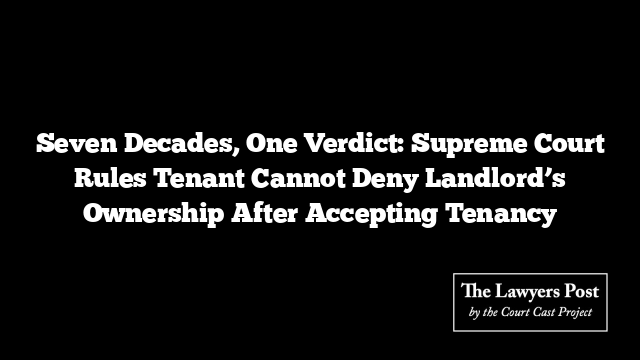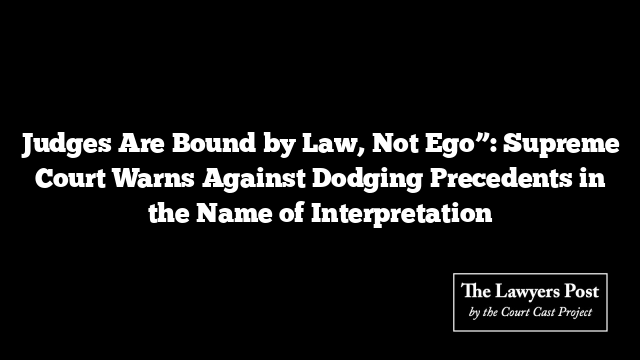In a case that began before India’s first general election, the Supreme Court has drawn a firm line on the rights of tenants — declaring that one who enters a property under a landlord’s rent deed cannot later challenge that very landlord’s ownership.
The dispute, simmering since 1953, involved a small shop let out by one Ramji Das. For decades, rent was paid to him and, later, to his son. Yet, generations down the line, the tenants attempted to turn the tables — claiming that Ramji Das had no ownership at all, and that the property actually belonged to his uncle.
The Supreme Court, however, saw through the decades of confusion and dismissed the tenants’ claims as untenable. “A tenant who enters possession under a rent deed cannot question the title of the landlord or his successor,” held a bench of Justices JK Maheshwari and K Vinod Chandran, overturning concurrent findings of the lower courts.
The Dispute That Outlived Generations
The legal battle pitted the descendants of the original landlord against those of the original tenant. The plaintiff, Ramji Das’s daughter-in-law, sought eviction based on a 1999 Will and cited a bona fide need — to expand her family’s long-running sweets and savouries business in the adjacent shop.
The tenants’ heirs alleged that the Will was fraudulent and that Ramji Das himself never owned the property. Both the trial and appellate courts sided with the tenants, ruling that the landlord’s successor had failed to establish ownership.
Supreme Court Restores Order
The apex court dismantled those findings, calling them “perverse” and unsupported by evidence. It highlighted a 1953 relinquishment deed in which Ramji Das’s uncle, Sua Lal, had explicitly given up his rights to the property in Ramji Das’s favour. This document, coupled with the unbroken payment of rent for decades, sealed the matter.
The Court also relied on a 2018 probate order validating Ramji Das’s Will — an order the High Court had wrongly brushed aside. Doubts raised merely because the testator did not mention his wife, the Supreme Court said, were “unfounded and legally irrelevant.”
Once the Will was probated, the Court observed, the ownership of the plaintiff “attained complete legal sanctity.”
Eviction Ordered, Time Granted
Recognizing the family’s genuine need to expand their business, the Supreme Court decreed eviction and ordered the tenants to pay rent arrears from January 2000 until the date they vacate. Yet, in a gesture of fairness, the Court granted six months’ time to surrender possession — provided the tenants submit an undertaking within two weeks and clear arrears within one month.
Failing that, the landlord would be free to initiate summary eviction proceedings.
Thus, what began as a humble shop lease in the early years of the Republic has finally met its judicial epilogue — a reminder that tenancy carries obligations, and time cannot rewrite the truth of ownership.





